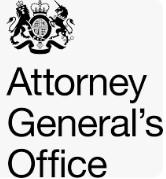The Attorney General is a senior legal officer in the United Kingdom who is responsible for representing the Crown and the government in legal matters.
Role of the Attorney General
The Attorney General is appointed by the monarch on the advice of the Prime Minister, and is usually a member of the government.
The role of the Attorney General is multifaceted and includes the following main responsibilities:
- Overall responsibility for the work of the Attorney General’s Office and superintended Departments (the Government Legal Department, the Crown Prosecution Service, the Serious Fraud Office and HM Crown Prosecution Service Inspectorate)
- Specific statutory duty to superintend the discharge of duties by the Director of Public Prosecutions (who heads the Crown Prosecution Service) and the Director of the Serious Fraud Office
- Non-statutory general oversight of the Services Prosecuting Authority and government prosecuting departments
- Government’s principal legal adviser dealing with (amongst others) questions of international law, human rights, devolution and COVID-19 issues
- Public interest functions, for example, reference of unduly lenient sentences to the Court of Appeal, bringing proceedings for contempt of court and intervention in certain proceedings to protect charities
- Questions of law arising on Bills and with issues of legal policy
- Legal aspects of all major international and domestic litigation involving the Government, (including matters related to future relations with the EU)
The Attorney General also holds the separate office of Advocate General for Northern Ireland. The Advocate General for Scotland has specific responsibility for Scottish law matters.
Ministerial Role – Attorney General
The current Attorney General of the United Kingdom is The Rt Hon Victoria Prentis KC MP.
Victoria Prentis was appointed Attorney General on 25 October 2022.
She was previously Minister of State at the Department for Work and Pensions from 7 September 2022 to 25 October 2022.
Victoria was previously Minister of State at the Department for Environment, Food and Rural Affairs on 16 September 2021 to 7 September 2022.
Before that, she was Parliamentary Under Secretary of State at the Department for Environment, Food and Rural Affairs from 14 February 2020 to 15 September 2021.
She was elected as the Conservative MP for Banbury in May 2015.
Ministerial Role – Attorney General
Attorney General Office
The Attorney General’s Office (AGO) provides legal advice and support to the Attorney General and the Solicitor General (the Law Officers) who give legal advice to government. The AGO helps the Law Officers perform other duties in the public interest, such as looking at sentences which may be too low.
AGO is a ministerial department, supported by 4 agencies and public bodies.
History of the Attorney General
The role of the Attorney General in the United Kingdom can be traced back to the medieval period, when the King’s legal advisor was known as the “King’s Serjeant”. Over time, this role evolved into that of the Attorney General, who was responsible for representing the Crown in legal matters and advising the government on legal issues.
The first recorded holder of the title of Attorney General was William de Boneville, who was appointed by King Edward I in 1278. However, it was not until the 16th century that the role of the Attorney General became more clearly defined and institutionalized.
During the reign of Queen Elizabeth I in the late 16th century, the Attorney General became an important figure in the administration of justice and the government. The Attorney General was responsible for prosecuting criminal cases, advising the monarch and the government on legal matters, and representing the Crown in court.
In the 19th and 20th centuries, the role of the Attorney General continued to evolve, with a growing focus on providing legal advice to the government and upholding the rule of law. Today, the Attorney General remains an important legal officer in the United Kingdom, with a wide range of responsibilities and duties related to representing the Crown and the government in legal matters.
Attorney General Salary
The Attorney General is entitled to a salary of £100,819 but claims £94,450 according to Salaries of members of His Majesty’s Government: April 2022 (HTML)
This is addition to the basic annual salary for an MP from 1 April 2022 which is £84,144 according to Pay and expenses for MPs.
Read the reviews of Gavin Howe Barrister
“He is awful, underhanded and should not be practising law!”
Latest Articles
- What is a Paralegal ?A paralegal is a legal professional who performs tasks that require knowledge of legal concepts but does not hold the… Read more: What is a Paralegal ?
- What is a Judgment ?A judgment, also known as a judicial decision or court ruling, is the final decision made by a court of… Read more: What is a Judgment ?
- What is an Adverse Inference ?Adverse inference is a legal principle that plays a significant role in various areas of law, including criminal, civil, and family law. It arises… Read more: What is an Adverse Inference ?
- BarristersA barrister is anyone who has been Called to the Bar in England and Wales. For a barrister to offer… Read more: Barristers




